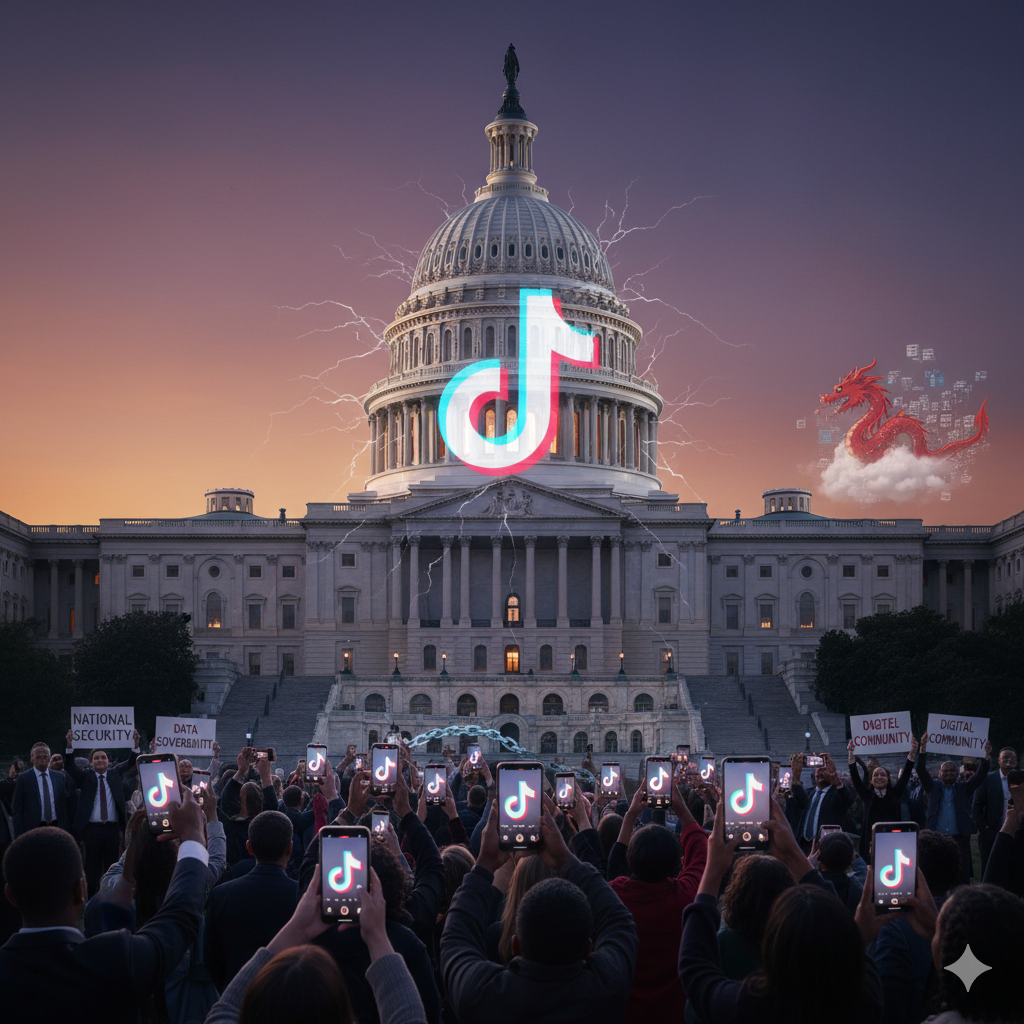David’s Note: This article was substantially revised on October 10, 2025 to incorporate new research and provide a more comprehensive analysis.
On January 17, 2025, the U.S. Supreme Court upheld a landmark law that forces the sale of TikTok, a platform used by over 170 million Americans, or face a nationwide ban.1 This decision highlighted a central paradox in modern American policy. TikTok is at once a legislative target, condemned as a grave national security threat, and an indispensable campaign tool, actively leveraged by the political actors who seek to regulate it.
This paper argues that this apparent contradiction is not a sign of policy incoherence. Instead, it reveals an evolving and deliberate strategy to confront a novel threat to the nation’s digital sovereignty. Digital sovereignty is a nation’s ability to control its own digital destiny—the data, hardware, and software it relies upon.3 In this context, it means securing the digital infrastructure and information environment within its borders from the control of a strategic adversary.4
The core of this argument is that the threat posed by TikTok is fundamentally structural. It is rooted in the legal and operational subordination of its parent company, ByteDance, to the government of the People’s Republic of China (PRC). This structural risk is distinct from the commercial data practices of domestic social media companies. It has compelled the U.S. to forge a new national security doctrine for the digital age.
To develop this thesis, this paper will proceed in four parts.
- Section I will establish that TikTok represents a structural national security threat due to its data collection capabilities under PRC law and its potential for algorithmic manipulation.
- Section II will trace the evolution of U.S. legal strategy, from the failure of broad executive orders to the crafting of a targeted, constitutionally-sound legislative solution.
- Section III will systematically deconstruct the primary counterarguments against this policy, including those based on the First Amendment, economic disruption, and false equivalencies with U.S. tech firms.
- Section IV will analyze the political realities that create the central paradox, examining how electoral pragmatism and divided public opinion coexist with the national security consensus.
Ultimately, this analysis will demonstrate that the TikTok dilemma is a landmark case in how a liberal democracy is adapting its legal and political tools to defend its sovereignty in an era of weaponized information.
(more…)


